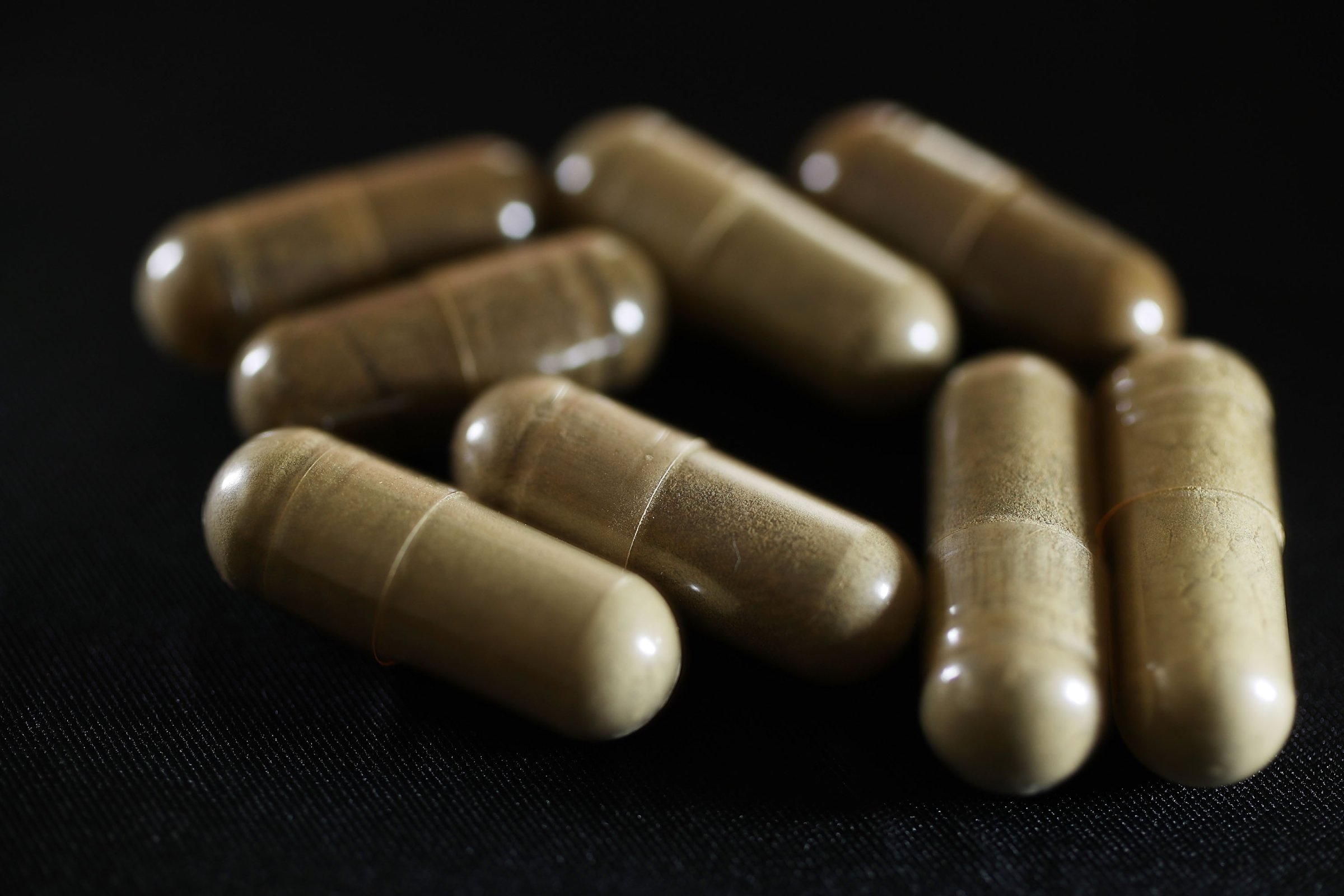
Kratom, a controversial herbal supplement used for pain relief, is likely behind a salmonella outbreak that has affected 35 states, according to the Centers for Disease Control and Prevention (CDC).
Mitragyna speciosa, commonly called kratom, is often billed as a safer alternative to conventional painkillers. But the supplement made headlines in February, when Food and Drug Administration (FDA) officials said that kratom contains the same addictive, potentially dangerous chemicals found in opioids, and submitted a review to that effect to the Drug Enforcement Administration (DEA).
The bad news about kratom continues with the CDC’s announcement, which says a nationwide bout of salmonellosis, or salmonella infections, may be related to it. An initial announcement from the CDC said people from 20 states across the country had come down with same strain of salmonella as of Feb. 16. An update issued Thursday said that number has swelled to 87 sick people across 35 states, with an additional three strains of salmonella included in the outbreak.
Many of those cases have been linked to kratom products, and CDC officials previously identified salmonella in leftover kratom powder collected from sick individuals in North Dakota and Utah.
Salmonella is a bacterial infection often spread through exposure to contaminated water or food, according to the Mayo Clinic. It typically causes significant gastrointestinal distress, and it can become life-threatening if the infection spreads beyond the intestines.
No one has died from the current salmonella outbreak, the CDC says, but 27 sick individuals have been hospitalized. Because no single brand has been implicated, the CDC is recommending that people stay away from all kratom products, including powders, teas and pills. The supplement may also be sold under names including Thang, Kakuam, Thom, Ketom and Biak.
Salmonella aside, kratom may soon disappear from shelves and medicine cabinets. The DEA is currently deliberating whether the supplement, which is also taken to reduce anxiety and drug dependence, should be placed in the same class of illegal drugs as heroin and LSD. Though the substance is currently legal in most states, there is an import alert on record to prevent it from entering the country illegally, and the FDA has seized several shipments.
Forty-four deaths have been reported in connection with kratom since 2011, according to the FDA.
More Must-Reads from TIME
- Why Trump’s Message Worked on Latino Men
- What Trump’s Win Could Mean for Housing
- The 100 Must-Read Books of 2024
- Sleep Doctors Share the 1 Tip That’s Changed Their Lives
- Column: Let’s Bring Back Romance
- What It’s Like to Have Long COVID As a Kid
- FX’s Say Nothing Is the Must-Watch Political Thriller of 2024
- Merle Bombardieri Is Helping People Make the Baby Decision
Write to Jamie Ducharme at jamie.ducharme@time.com